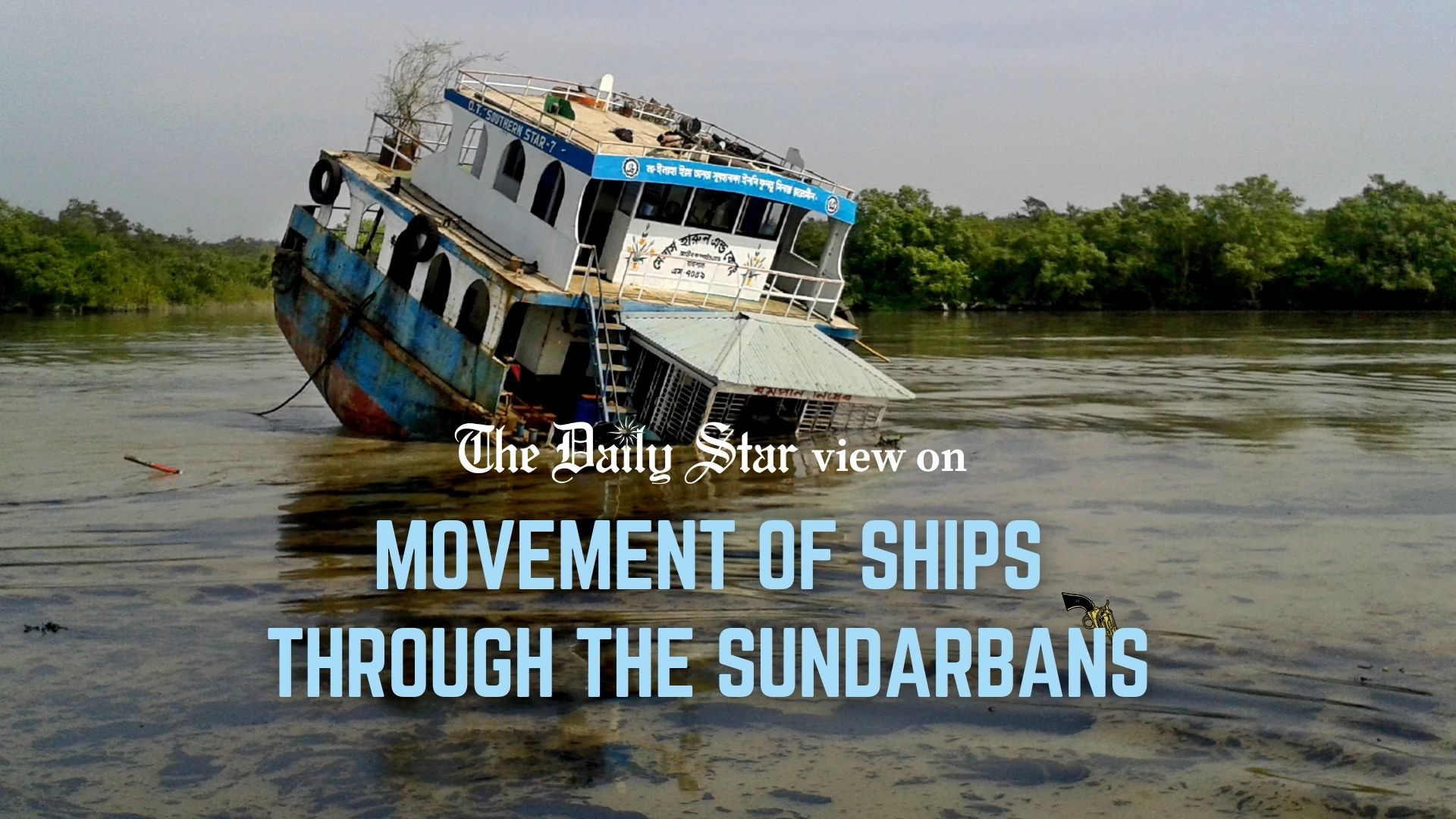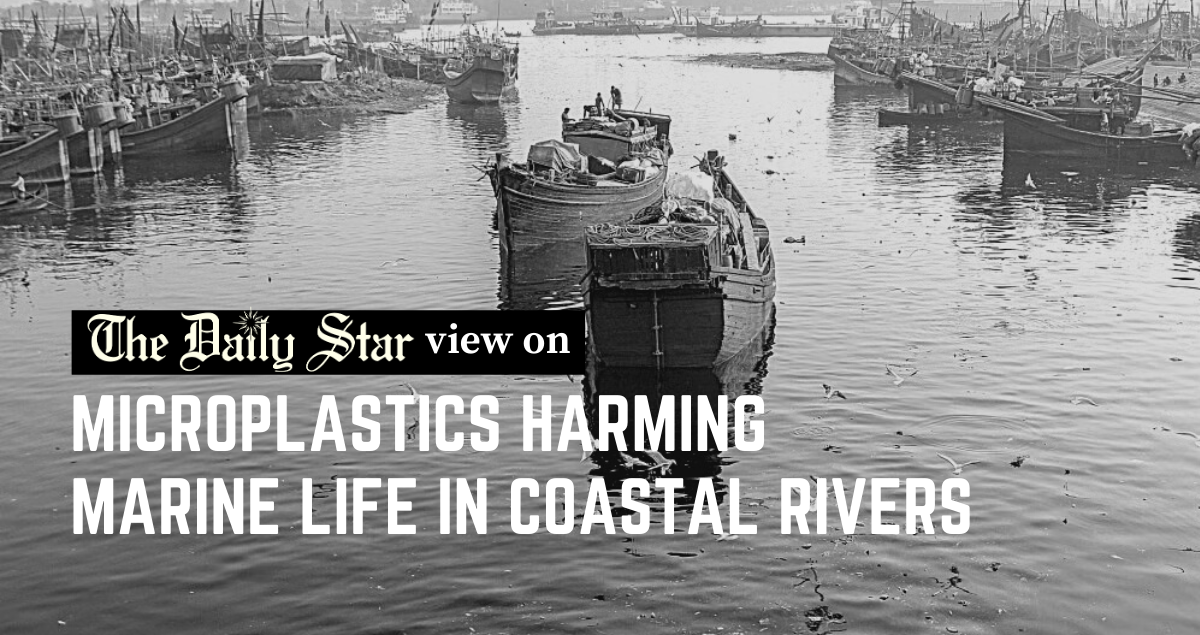Plastic Pollution invades the Sundarbans
A group of primates wrestled with a plastic bag caught in the tangled roots of a mangrove tree. Their screeches echoed through the dense forest as they tore at the flimsy material, desperate for the scraps of food trapped inside.
This wasn't natural, little did they know about the harmful impacts of plastic or polythene on wildlife, or the forest they live in.

In a recent visit to the forest (before cyclone Remal), this correspondent observed that single-use plastics, used in Khulna and other areas near the Sundarbans, have made their way into the forest.
Besides, plastic bottles were seen scattered along the banks of Bhairab river near the forest.
Back in January 2020, the High Court directed a ban on single-use plastics in hotels, motels, and restaurants in coastal areas. But three years on, the plastic menace continues unabated.
Researchers have found that fish in the rivers and seas had plastic in their stomachs. This plastic, eventually, makes its way into the human system.
Back in January 2020, the High Court directed a ban on single-use plastics in hotels, motels, and restaurants in coastal areas. But three years on, the plastic menace continues unabated. The lack of enforcement and public awareness has turned this issue into an environmental crisis.

The ease of use and ready availability of single-use plastics have made them a ubiquitous part of daily lives. But this convenience comes at a steep cost -- the cost of a choked ecosystem, poisoned wildlife, and ultimately, public health.
Shamim Ahsan, a hotelier in Khulna city, started using single-use plastics due to customer demand and the ease of cleaning. Since the pandemic, many customers prefer plastic glasses and one-time plates, he said.
He said hotel, motel, and restaurant owners find these plastics convenient and cost-effective.
HM Alauddin, a resident in Tutpara area, said, "There are at least 15 to 16 plastic factories in Labonchhara, Tutpara, Rupsa and Phulbari Gate areas of Khulna city. These plastic factories operate late at night. And from here the plastic reaches the buyers through different hands. The biggest destination for plastic is Borobazar of Khulna."
On March 29, 2023, the environment minister prohibited the use of single-use plastic in the Sundarbans.
Babul Howladar, Khulna coordinator of Bangladesh Paribesh Andolan, said despite occasional raids by law enforcers, their efforts lack consistency.
According to the KCC's Conservancy Office, Khulna city generates 1,200 to 1,600 tonnes of waste daily, including 25 to 30 tonnes of plastic waste, with 10 to 15 percent being single-use plastics. Additionally, 5 to 6 lakh single-use plastic bags end up in drains and water bodies, said Anisur Rahman, KCC's chief conservancy officer.
Mahfuzur Rahman Mukul, Khulna divisional coordinator of BELA, said single-use plastics from areas like Jashore's Nowapara and Khulna's Borobazar are polluting the rivers and canals of the Sundarbans, threatening coastal livelihoods and biodiversity.
He emphasised the importance of using clay cups or other alternatives.
Abdullah Harun Chowdhury, professor of Environmental Science at Khulna University, emphasised the need for an "Environment Protection Police Force" to enforce the law banning 55-micron thick polythene bags.

He explained that plastic in coastal areas is entering the food chain through fish, affecting their reproductive process and growth. This plastic pollution also impacts other aquatic animals, he added.
Dr Abu Naser Mohsin Hossain, divisional forest officer, Sundarbans West, said they have informed all tour operators that single-use plastics are completely banned in the Sundarbans.
"Recently, we have fined a trawler Tk 30,000 for using plastics," he said.
He said the main challenge is that plastic is entering the Sundarbans through rivers and canals of the city. "We can't control the use of plastics in city areas. The authorities concerned should be more proactive in this regard," he said.




 For all latest news, follow The Daily Star's Google News channel.
For all latest news, follow The Daily Star's Google News channel. 

Comments